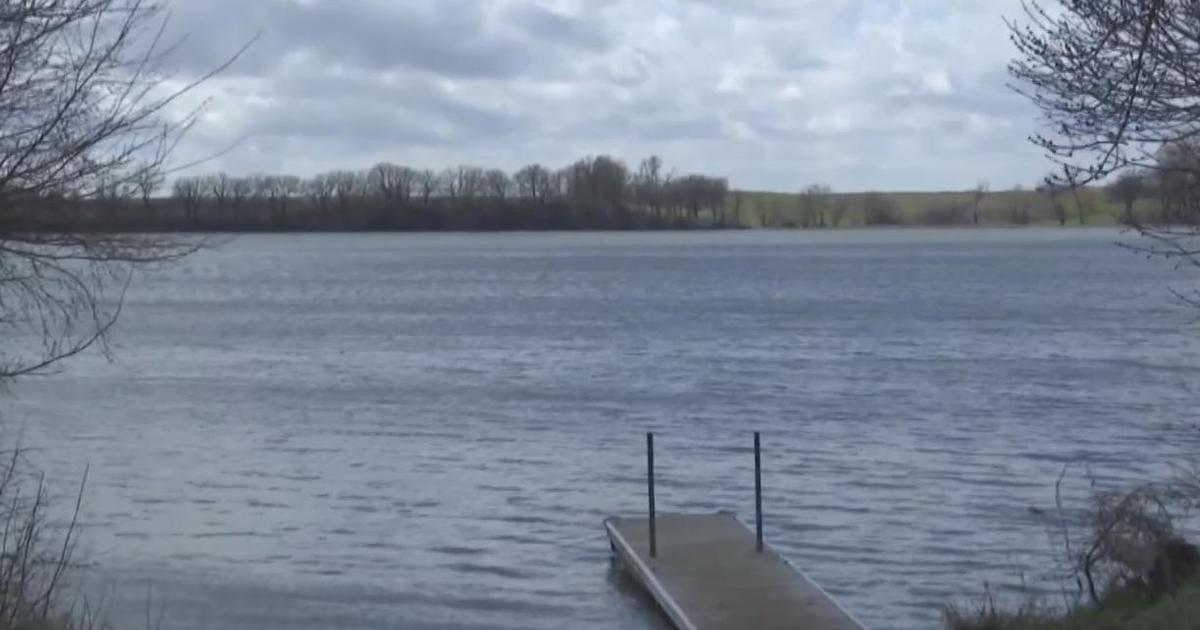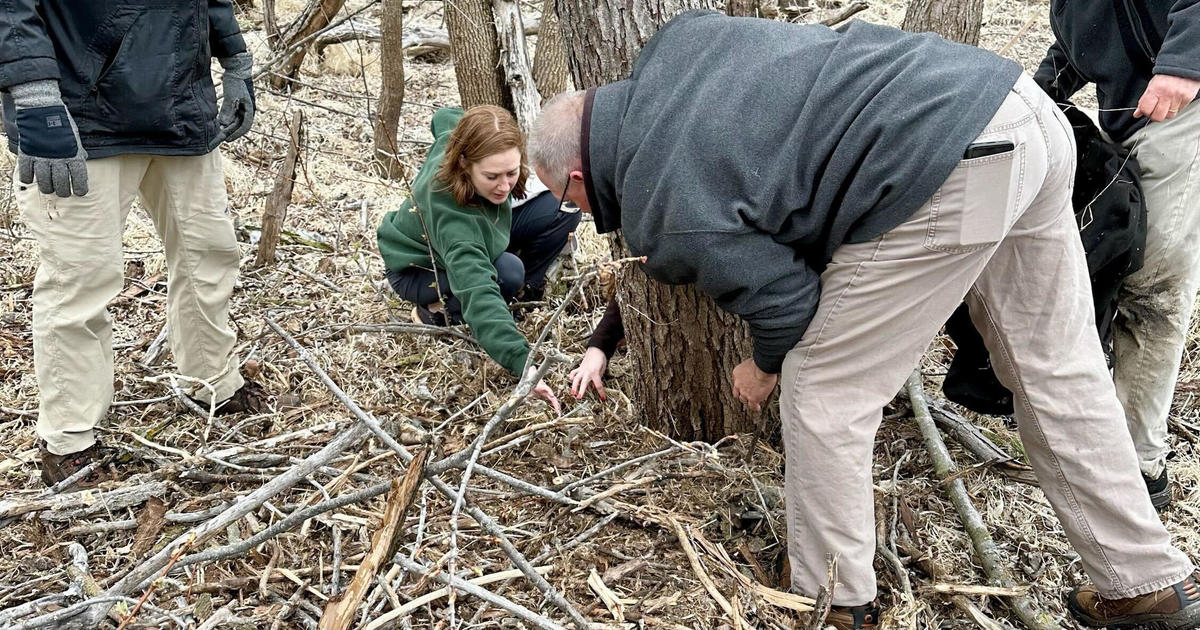Herons Making Big Recovery After Raccoon Predation
LINO LAKES (WCCO) -- On a windswept Peltier Lake in Anoka County, a crew of caring folks jump in a boat for a short jaunt to an island. On the far north end of the lake, the protected bird sanctuary is a nature study still in progress.
Their mission on this warm day in May is to check the progress of birds on the rebound!
In a canopy of emerald green, Wayne LeBlanc and his colleagues in the study crew immediately spot what they're looking for. Dozens of Great Blue Herons are squawking loudly overhead. Equally as impressive is the sight of herons clinging to branches and soaring overhead. It's been years since the team has recorded this much nesting activity on the small but scenic island.
"Look at all the whitewash on the ground and look up and see several nests," said lake resident, Ron Marier.
Yes, even a smelly forest floor, white with heron droppings is a welcomed sight. It wasn't many years ago that nature lovers feared losing the precious herons for good. In early 2000, they began noticing the numbers of nests in sharp decline. Initially, biologists thought the birds and their eggs were falling prey to hungry eagles or great horned owls. Something was causing the adults to simply flee their nests and abandon their tiny chicks.
Andy Von Duyke was a University of Minnesota graduate student working with the Minnesota Department of Natural Resources and Anoka County parks. By 2005, Von Duyke and others placed battery-powered remote cameras high in the trees in attempt to capture the predators in action. What they soon discovered surprised nearly everyone. Raccoons were decimating the colony under the cover of darkness, and they were eating more than just the heron eggs.
"Interestingly, the raccoons climbed the trees and ate the chicks and they were very large chicks," said Von Duyke.
That's when the team of biologists and volunteers jumped into action. The following winter they came up with a solution – wrapping all the tree trunks with metal flashing to prevent the raccoons from climbing into the nests. The work is paying off with the number of active nests more than tripling in just a few short years.
Walking around the island, Wayne LeBlanc commented, "I could see a few chicks, but it appears they're not out of the nests yet."
LeBlanc and his crew estimate more than 125 herons are actively nesting on the island. That's a sharp increase from the 47 that were counted in 2010.
It is truly nature's success story, told in the dense canopy of Peltier Island!
"It's really nice to see the activity, the noise and all the new nesting. So, hopefully, they're coming back," said LeBlanc.



